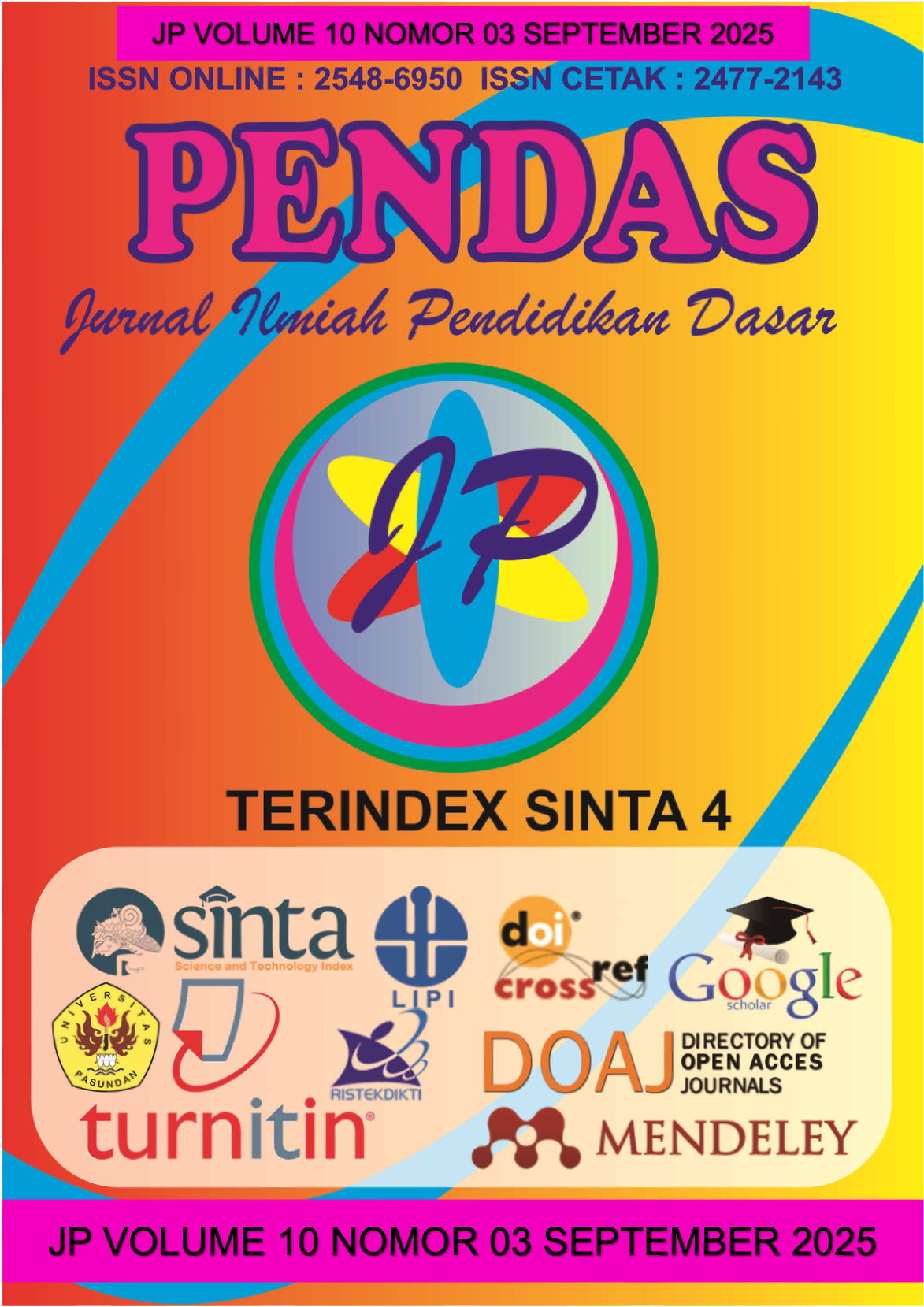ASESMEN PERKEMBANGAN KOGNITIF DALAM PEMBELAJARAN ANAK USIA DINI
DOI:
https://doi.org/10.23969/jp.v10i03.29653Keywords:
assessment, cognitive development, early childhoodAbstract
The golden age of early childhood is the period that underlies the next human life. In this period, children can hear, see, and imitate what they see, hear, and feel. Early childhood cognitive development is very important for child development, children need to be given cognitive stimulus to help other developmental stimuli. With cognitive stimulus, children can grow and develop well. By conducting an assessment of early childhood cognitive development, we can find out that each child has a different rate of cognitive development for each individual, what the child has not been able to achieve, find out what activity materials are considered inappropriate and materials so that teachers or parents can improve the methods and strategies that will be used. This assessment has a positive impact on the application of cognitive development, because it can improve the cognitive aspects of early childhood. Likewise with other aspects such as physical, social emotional, language, religious and moral values, and art. This paper aims to describe how cognitive development assessments in early childhood learning. This study uses a literature study method whose data sources are relevant and related to cognitive development assessments in early childhood learning. From the research results there are 4 stages of cognitive development including the sensory motor stage, pre-operational stage, concrete operational stage, and formal operational stage. There are several techniques and methods in assessing the education of children of this age, namely by observation, anecdotal notes, through conversation, through assignments, performance, work results, daily child development achievement scale (checklist), portfolio.
Downloads
References
Azizah, I. & Adawiyah, A.R. (2020). Pertumbuhan Dan Perkembangan Anak (Bayi, Balita, Dan Usia Prasekolah). Anggota Ikapi.
Fadlillah, M. (2017). Bemain & Permainan Anak Usia Dini. Jakarta: Kencana.
Gunarsa, S. (2008). Dasar dan Teori Perkembangan Anak. Jakarta: BPK Gunung Mulia.
P. Indra, I. M. & Cahyaningrum, I. (2019). Buku Cara Mudah Memahami Metodologi Penelitian: Vol. I. Deepublish.
Khadijah. (2016). Pengembangan Kognitif Anak Usia Dini. Medan:Perdana Publishing.
Nazir, Moh. (2015). Metode Penelitian. Bogor: Ghalia Indonesia.
Affandi, M. I. (2023). Asesmen Dan Evaluasi Pada Pembelajaran Anak Usia Dini. Jurnal Penelitian dan Pendidikan Agama Islam. STAI Tebingtinggi Deli.
Khaironi, M. (2018). Perkembangan anak usia dini. Jurnal Golden Age, Vol. 2, No. 1, Hal. 1-12.
Nugraha, A. dkk. (2005). Kurikulum dan Bahan Belajar TK. Jakarta: Universitas Terbuka.
Rahman, U. (2009). Karakteristik perkembangan anak usia dini. Lentera Pendidikan: Jurnal Ilmu Tarbiyah dan Keguruan. Vol. 12, No. 1. Hal. 46-57.
Suyanto, S. (2005). Konsep dasar Pendidikan Anak Usia Dini. Jakarta: Dirjen Dikti Depdiknas.
Downloads
Published
Issue
Section
License
Copyright (c) 2025 Pendas : Jurnal Ilmiah Pendidikan Dasar

This work is licensed under a Creative Commons Attribution 4.0 International License.



















